wilson pickett
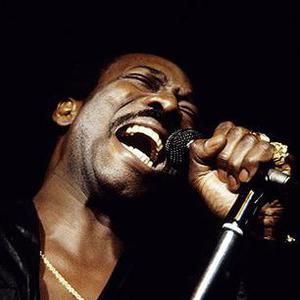
- Meta style:
- Soul
- Styles:
- Deep Soul, Southern Soul
Wilson Pickett (March 18, 1941 ? January 19, 2006) was an American R&B and soul singer. Known for his raw, passionate delivery, he was a major figure in the development of Southern soul music. One of the most popular black singers of the '60s, Wilson Pickett helped introduce the aggressive, rhythmic style of soul music. Aided immeasurably by the excellent studio bands backing him at the Stax Studios in Memphis, Tennessee, and the Fame Studio in Muscle Shoals Alabama, Pickett scored a series of R&B and pop hits on Atlantic Records between 1963 and 1972 that included "In the Midnight Hour...
One of the most popular black singers of the '60s, Wilson Pickett helped introduce the aggressive, rhythmic style of soul music. Aided immeasurably by the excellent studio bands backing him at the Stax Studios in Memphis, Tennessee, and the Fame Studio in Muscle Shoals Alabama, Pickett scored a series of R&B and pop hits on Atlantic Records between 1963 and 1972 that included "In the Midnight Hour," "Mustang Sally," and "Funky Broadway."
Raised in Prattville, Alabama, Wilson Pickett moved to Detroit, Michigan at the age of sixteen and made his professional debut as the lead singer of The Violinaires in the late '50s. From 1961 to 1963 he was in The Falcons, writing and singing their 1962 hit "I Found Love." Pickett then went solo and signed with Lloyd Price's Double L Records, where he wrote and recorded "If You Love Me" and "It's Too Late."
In 1964, Pickett signed with Atlantic Records and did his early recordings in the Stax studio in Memphis, Tennessee with Booker T. Jones and Steve Cropper of The MGs. Cropper co-authored three of his early hits, "In the Midnight Hour" and "Don't Fight It from his debut album The Exciting Wilson Pickett that established him as a major soul star. The album also included "Ninety-Nine and a Half (Won't Do)," "She's So Good to Me," and "Land of a 1,000 Dances," all recorded at Fame Studio in Muscle Shoals.
Pickett then had hits with "Mustang Sally," "I Found a Love," and "Funky Broadway," all recorded in Muscle Shoals. Pickett then teamed with Bobby Womack in 1968 for Midnight Mover that yielded a Top 10 R7B and pop hit with Womack's title song. In 1969, Pickett had a major hit with The Beatles "Hey Jude,", followed in 1970 by "Sugar, Sugar." Later in 1970, Pickett worked with producers Kenny Gamble and Leon Huff at Sigma Sound Studios in Philadelphia. The result was two crossover hits "Engine Number Nine," and "Don't Let the Green Grass Fool You."
After crossover hits "Don't Knock My Love - Part 1" and "Fire and Water" Pickett left Atlantic for RCA, with minimum success. Pickett later recorded for several record companies, including his own Wicked label, but failed to have anymore hits.
Wilson Pickett was inducted into the Rock and Roll Hall of Fame in 1991.
- Sort by
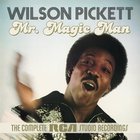
Mr. Magic Man: The Complete RCA Studio Recordings CD2
- Year:
- 2015
- Tracks:
- 20
- Bitrate:
- 320 kbps
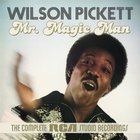
Mr. Magic Man: The Complete RCA Studio Recordings CD1
- Year:
- 2015
- Tracks:
- 22
- Bitrate:
- 320 kbps
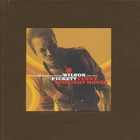
Funky Midnight Mover: The Atlantic Studio Recordings 1962-1978 CD6
- Year:
- 2010
- Tracks:
- 18
- Bitrate:
- 320 kbps
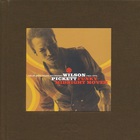
Funky Midnight Mover: The Atlantic Studio Recordings 1962-1978 CD5
- Year:
- 2010
- Tracks:
- 23
- Bitrate:
- 320 kbps
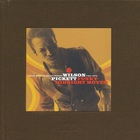
Funky Midnight Mover: The Atlantic Studio Recordings 1962-1978 CD4
- Year:
- 2010
- Tracks:
- 25
- Bitrate:
- 320 kbps
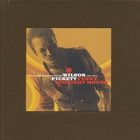
Funky Midnight Mover: The Atlantic Studio Recordings 1962-1978 CD3
- Year:
- 2010
- Tracks:
- 28
- Bitrate:
- 320 kbps
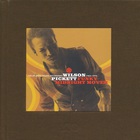
Funky Midnight Mover: The Atlantic Studio Recordings 1962-1978 CD2
- Year:
- 2010
- Tracks:
- 30
- Bitrate:
- 320 kbps
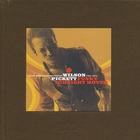
Funky Midnight Mover: The Atlantic Studio Recordings 1962-1978 CD1
- Year:
- 2010
- Tracks:
- 30
- Bitrate:
- 320 kbps
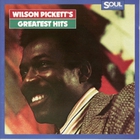
Greatest Hits
- Year:
- 2000
- Tracks:
- 24
- Bitrate:
- 320 kbps
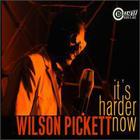
It's Harder Now
- Year:
- 1999
- Tracks:
- 11
- Bitrate:
- 320 kbps
 Arthur Conley 5
Arthur Conley 5 Booker T & The Mgs 1
Booker T & The Mgs 1 James Carr 7
James Carr 7 Joe Tex 16
Joe Tex 16 Otis Redding 56
Otis Redding 56 Percy Sledge 13
Percy Sledge 13 Rufus Thomas 11
Rufus Thomas 11 sam and dave 1
sam and dave 1 Solomon Burke 46
Solomon Burke 46 Arthur Alexander 9
Arthur Alexander 9 Eddie Floyd 8
Eddie Floyd 8 Sam Moore 3
Sam Moore 3 Charles Bradley 7
Charles Bradley 7 Nathaniel Mayer 3
Nathaniel Mayer 3 O.V. Wright 15
O.V. Wright 15 Otis Clay 12
Otis Clay 12 Curtis Harding 7
Curtis Harding 7 Gene McDaniels 7
Gene McDaniels 7 James Brown 138
James Brown 138 Booker T. Jones 9
Booker T. Jones 9 carla thomas 9
carla thomas 9 David Porter 5
David Porter 5 Don Bryant 3
Don Bryant 3 Marvin Gaye 126
Marvin Gaye 126